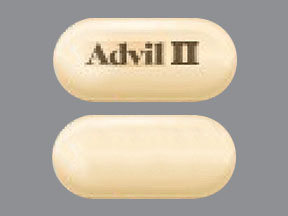
Advil Dual Action Coupons & Savings Card – Discount Prices from $8.46
My prescription
Edit
125-250MG, Advil Dual Action (36 Tablets)
Select pharmacy

Walgreens
$8.46
COUPON PRICE
Albertsons
$8.70
COUPON PRICE
Walmart
$29.86
COUPON PRICEAdvil Dual Action savings card
Show this card to your pharmacist
Walgreens
$8.46
BIN
ID
PCN
GRP
011867
LH24C4C9F2
HT
LABH001
Powered by
More prescriptions for pain
More prescriptions for pain
Price history for Advil Dual Action
36 Tablets, 125-250MG
Average retail price for Advil Dual Action
Average SaveHealth price for Advil Dual Action
Our price history data is based on aggregated prescription data collected from participating pharmacies in America. Our prescription data updates daily to reflect the latest price changes. If you notice a missing data point, it means there wasn't sufficient data available to generate a monetary value for that date.
*Retail prices are based on pharmacy claims data, and may not be accurate when we don't have enough claims.
Advil Dual Action dosage forms
Dosage Quantity Price from Per unit 125-250MG 36 Tablets $9.29 $0.26 125-250MG 8 Tablets $7.90 $0.99 125-250MG 18 Tablets $8.39 $0.47 125-250MG 72 Tablets $11.07 $0.15 125-250MG 100 Tablets $12.46 $0.13 125-250MG 144 Tablets $14.65 $0.10 125-250MG 216 Tablets $18.22 $0.08
| Dosage | Quantity | Price from | Per unit |
|---|---|---|---|
| 125-250MG | 36 Tablets | $9.29 | $0.26 |
| 125-250MG | 8 Tablets | $7.90 | $0.99 |
| 125-250MG | 18 Tablets | $8.39 | $0.47 |
| 125-250MG | 72 Tablets | $11.07 | $0.15 |
| 125-250MG | 100 Tablets | $12.46 | $0.13 |
| 125-250MG | 144 Tablets | $14.65 | $0.10 |
| 125-250MG | 216 Tablets | $18.22 | $0.08 |
Is Advil Dual Action stronger than regular Advil?
Advil Dual Action combines ibuprofen with acetaminophen, which can provide more effective pain relief for some individuals compared to regular Advil, which contains only ibuprofen. The combination of these two active ingredients can target pain through different mechanisms, potentially offering enhanced relief. However, the effectiveness can vary depending on the individual's specific condition and response to the medication. It is important to follow dosing instructions and consult with a healthcare provider if there are any concerns.
Do I have to eat before taking Advil Dual Action?
It is not necessary to eat before taking Advil Dual Action, but taking it with food or milk can help minimize potential stomach upset. If there are any concerns or specific health conditions, it is advisable to consult with a healthcare professional.
Can I take Advil Dual Action on an empty stomach?
It is generally recommended to take Advil Dual Action with food or milk to help minimize potential stomach upset. However, if taken on an empty stomach, it may still be effective, but there is a higher risk of gastrointestinal discomfort. If there are concerns about stomach issues, it is advisable to consult with a healthcare professional.
